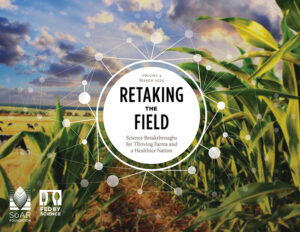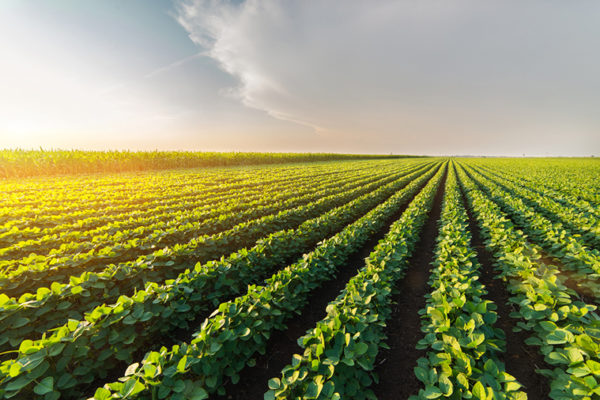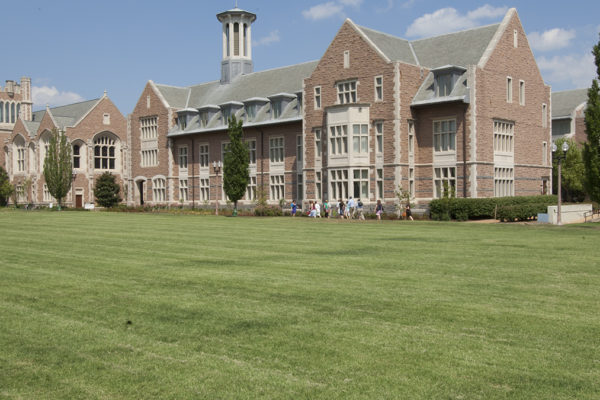Two Olin Business School researchers at Washington University in St. Louis are highlighted in a new federal report issued March 27 showing how U.S. farmers — facing a surge of weather events and disease outbreaks — can increase production and revenues with innovations produced by government-funded agricultural research.
The report was issued by the Supporters of Agricultural Research (SoAR) Foundation, whose original founders included former Chancellor William Danforth, and 20 “FedByScience“ research institutions.

The research, winner of the 2018 Olin Award, is by Ling Dong, professor of operations and manufacturing management, and Durai Sundaramoorthi, senior lecturer in management. It uses computer simulations and data-based decision making to help farmers to find the right seeds for planting and crop yield, and was one of the five top 2018 national data and informatics studies that the report singled out. In fact, Dong and Sundaramoorthi were the only co-authors cited. The other 19 named were single authors/researchers. All were featured for their teams’ work on food and agricultural breakthroughs. SoAR’s story on their study is found here.
“It’s an incredible honor to be nationally recognized for this research and its importance to American farmers — and the millions they help to feed,” Dong and Sundaramoorthi wrote. “We feel there are tremendous opportunities for using data analytics and optimization tools to help farmers to access and fully utilize the most advanced scientific findings of agricultural science to improve decision making at every stage of farming.
“We are excited about the potential impact of this research and are eager to continue our research in this field.”
The new report, “Retaking the Field: Science Breakthroughs for Thriving Farms and a Healthier Nation,” highlights research projects in the five Science Breakthroughs areas identified as the most important fields to advance in agriculture by the year 2030: genomics, microbiomes, sensors, data and informatics and transdisciplinary research. These areas were determined by the National Academies of Sciences, Engineering, and Medicine (NASEM) as part of a widespread scientific effort to prioritize agricultural research endeavors.
“Investments in these five science breakthroughs will allow us to achieve a number of broader goals for food and agriculture in the U.S. in the next decade,” Thomas Grumbly, SoAR’s president, said in the official announcement. “But these advancements aren’t possible without federal funding for the research needed to tackle agriculture’s greatest problems. Farmers are getting hammered right now and they need innovation to at least soften the blows.”


